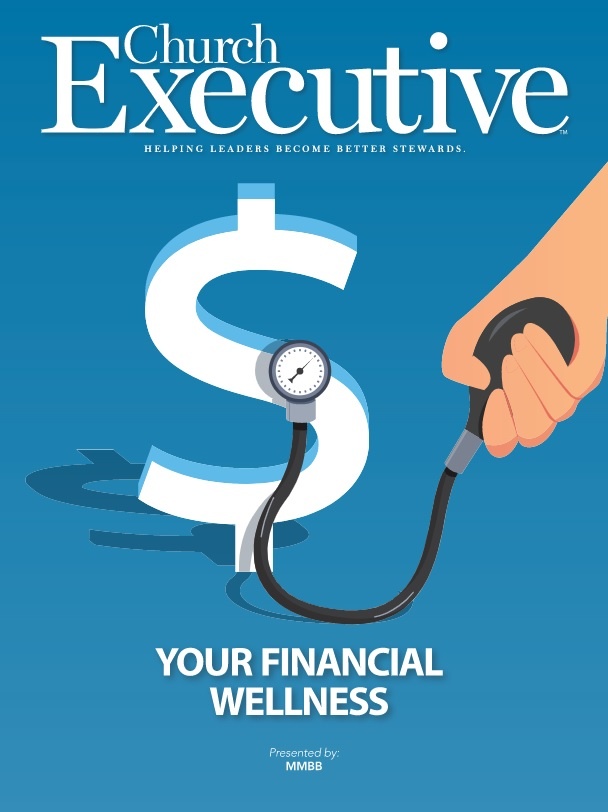
By Rev. Dr. Perry J. Hopper
 For any church to effectively carry out its ministry to faithfully serve God, it needs many lay leaders and volunteers with diverse gifts. All believers are called to be servant leaders, including the pastor and ministerial staff.
For any church to effectively carry out its ministry to faithfully serve God, it needs many lay leaders and volunteers with diverse gifts. All believers are called to be servant leaders, including the pastor and ministerial staff.
While the pastor is often the most visible servant in most denominations and churches, the two roles which are also crucial to successful management of the church are deacons and trustees.
The Greek word translated as “servant” or “deacon,” diakonos, is mentioned 29 times in the New Testament. Though the term trustee is never specifically mentioned, there are references to a role which lays the groundwork for some of the responsibilities of the church trustee.
In the New Testament, the word that comes closest to the trustee’s role is “steward.” Although all believers are expected to be stewards of God’s creation and what has been granted to them individually, trustees are responsible to act as stewards on behalf of the church. In Galatians 4:2, we find the Greek word epitropos translated as “one to whose care or honor anything has been instructed, a curator or guardian; a steward or manager of a household, or of lands.” Thus, church trustees are stewards who are entrusted with financial oversight of operating the church.
It is no coincidence that “trust” is the root word and notable descriptor in the title; trustworthiness and dependability are essential characteristics for carrying out many of the trustee’s duties. Typically, church trustees are elected for their roles.
Although a trustee’s job description might vary by denomination or church, trustee responsibilities generally fall into two categories: property and financial. Trustees are the legal custodians of the church property, and they exercise authority over all monetary gifts received by the church and the approval and payment of the church’s bills and expenses.

Ideally, church trustees should possess skills in property and asset management, budgeting, and legal matters. These abilities need to also be balanced with a sense of spiritual maturity and understanding that their oversight of the business aspects of the church is always in service to the church’s ministry.
In most congregations, there are likely members who possess the experience and some of the skills trustees need to serve effectively. But because the trustee board has such a significant impact on church finances, it is wise for churches to invest in regular fiscal training to ensure that trustees are knowledgeable and competent.
Annual fiscal training should cover the following basic areas:
Structure and governance of a non-profit organization
Since almost all churches operate as non-profit entities, trustees need to be familiar with any state mandates for religious nonprofits, which vary from state to state. The trustee board should be acquainted with church by-laws, denominational structure, and mandates.
A member of the trustee board may be designated to serve on a bylaws committee or on the church’s community development committee if there is one. Working with the deacon board or other designated group in the church and the pastor, the trustee will need to ensure that all programs and activities focus on the church’s mission. They may be designated to create or approve job descriptions for staffing and to keep them updated.
Structuring/negotiating fair compensation (including retirement, health, life and disability insurance)
Trustees should understand the components of compensation, including salary, benefits and reimbursable ministry-related expenses and how to determine fair compensation for those who are employed by the church. They need to be familiar with the typical salary ranges in their city or region for full-time and part-time clergy staff at churches that are similar in size. They will need to be knowledgeable about forming a compensation or pastoral relations committee that is balanced and includes church members from diverse ministries when negotiating pastoral compensation.
Financial and tax reporting
Trustees need to be knowledgeable about clergy taxes, the dual tax status of clergy who are both W-2 employees and self-employed, and the housing allowance and the role it plays in structuring a beneficial tax strategy.
The trustees should be trained to balance communicating with transparency on fiscal matters to the congregation with also controlling access to non-profit documents. Financial documents, checks, credit cards, and cash should always be in a secure location, and a few trustworthy individuals should have the ability to access these items. This can seem like an obvious requirement, but sometimes this basic rule can be overlooked to the detriment of the church.
The trustee will need to know if there are any taxes which the church is responsible for paying on a quarterly or annual basis — especially for churches that own additional properties. It makes sense for trustees to periodically arrange for the audit and review of their church’s financial records, and to be familiar with how an audit is conducted and what is expected from an audit report.
Risk management
Trustees need to provide for the safety and security of the church’s members and property. This means knowing about and making sure the church complies with local and state safety regulations, and has property and liability insurance for fire and theft. Trustees must also arrange for periodic inspections by the police and fire departments to determine unaddressed security and safety hazards. With older church buildings, annual inspections for structural concerns, water heaters, and kitchen safety are critical to having advance warning about potentially expensive repairs.
To sum up, churches that take the time and money to conduct annual training with their trustees, deacons and other leaders can minimize exposure to unpleasant and unnecessary misunderstandings and potential lawsuits with church members and the greater community that can distract from ministry. Annual training also helps facilitate smooth maintenance and operations of the church so that all church members and staff can focus on their faith.
Rev. Dr. Perry J. Hopper, MBA serves as the associate executive director and chief client services officer at MMBB [ www.mmbb.org ]. He joined MMBB’s staff in 1987 and is responsible for coordinating special programs that support MMBB’s mission. He works in various capacities to best serve existing members, to reach prospective members, and to maintain solid relationships between MMBB and its affiliates.
Rev. Dr. Hopper’s education includes a B.A. in political science (with a minor in business administration) from the University of Washington and an MBA from Penn State University. He also holds a Master of Divinity degree from the Harvard University Divinity School and a Doctor of Ministry degree as a Samuel DeWitt Proctor Fellow at the United Theological Seminary of Dayton, Ohio.



I’m a new trustee and need God and you all to help me do good.
need information on internal controls
I would like to have a copy of this important information if possible. Thank you!
The description of the responsibilities and importance of the trustee position well done!
Please send me a hard copy of ur book thx
Please send me the hard copy of this article. Thanks !
I will love to get A hard copy of this information. Thank You